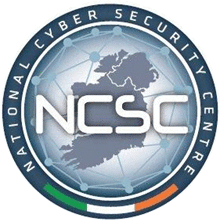
The Naukowa i Akademicka Sieć Komputerowa or NASK is a Polish research and development organization and data networks operator.
The United States Computer Emergency Readiness Team (US-CERT) is an organization within the Department of Homeland Security’s (DHS) Cybersecurity and Infrastructure Security Agency (CISA). Specifically, US-CERT is a branch of the Office of Cybersecurity and Communications' (CS&C) National Cybersecurity and Communications Integration Center (NCCIC).
The Korea Internet & Security Agency is the Ministry of Science and ICT's sub-organization dealing with the allocation and maintenance of South Korea's IPv4/IPv6 address space, Autonomous System Numbers, and the .kr country code top-level domain (ccTLD), and also responsible for the cybersecurity of the Internet within South Korea, and runs the Korea Computer Emergency Response Team Coordination Center, a.k.a. KrCERT/CC, for the private sector of the country. Other roles include but are not limited to, the promotion of safe Internet usage and Internet culture, detecting and analyzing malware/viruses on the web, privacy protection, operating root CA, education on Internet and cybersecurity, and various other cybersecurity issues.
A computer emergency response team (CERT) is an expert group that handles computer security incidents. Alternative names for such groups include computer emergency readiness team and computer security incident response team (CSIRT). A more modern representation of the CSIRT acronym is Cyber Security Incident Response Team.
CERT Polska is Computer Emergency Response Team which operates within the structures of Naukowa i Akademicka Sieć Komputerowa – a research institute which conducts scientific activity, operates the national .pl domain registry and provides advanced IT network services. CERT Polska is the first Polish computer emergency response team. Active since 1996 in the environment of response teams, it became a recognised and experienced entity in the field of computer security. Since its launch, the core of the team's activity has been handling security incidents and cooperation with similar units worldwide. It also conducts extensive R&D into security topics.
A cybersecurity regulation comprises directives that safeguard information technology and computer systems with the purpose of forcing companies and organizations to protect their systems and information from cyberattacks like viruses, worms, Trojan horses, phishing, denial of service (DOS) attacks, unauthorized access and control system attacks. There are numerous measures available to prevent cyberattacks.

The CERT Coordination Center (CERT/CC) is the coordination center of the computer emergency response team (CERT) for the Software Engineering Institute (SEI), a non-profit United States federally funded research and development center. The CERT/CC researches software bugs that impact software and internet security, publishes research and information on its findings, and works with businesses and the government to improve the security of software and the internet as a whole.
CZ.NIC is a Czech interest association of legal persons established by leading Internet service providers in 1998. The main activity of the association is administration of domain names .cz and 0.2.4.e164.arpa (ENUM), administration of .cz top-level domains and education in the area of domain names. Currently, the employees of the association are intensively working on expanding the DNSSEC technology, developing the domain administration system and mojeID service and promoting new technologies and projects beneficial to the Internet infrastructure in the Czech Republic.

Internet police is a generic term for police and government agencies, departments and other organizations in charge of policing the Internet in a number of countries. The major purposes of Internet police, depending on the state, are fighting cybercrime, as well as censorship and propaganda.

Internet in the Czech Republic and Internet access are largely provided by the private sector and is available in a variety of forms, using a variety of technologies, at a wide range of speeds and costs. In 2013, 68% of Czechs were connected to the Internet.
EINSTEIN was originally an intrusion detection system that monitors the network gateways of government departments and agencies in the United States for unauthorized traffic. The software was developed by the United States Computer Emergency Readiness Team (US-CERT), which is the operational arm of the National Cyber Security Division (NCSD) of the United States Department of Homeland Security (DHS). The program was originally developed to provide "situational awareness" for the civilian agencies. While the first version examined network traffic and subsequent versions examined content, the current version of EINSTEIN is significantly more advanced.
SigmaNet is the Academic Network Laboratory of the University of Latvia Institute of Mathematics and Computer Science. It is also the Latvian NREN, providing Internet services for the academic community in Latvia, including connectivity to the European network GÉANT, hosting, e-mail, data centre services, and grid resources.
RESTENA is the high-speed network for the education and research community of the Grand Duchy of Luxembourg. The network has been operational since 1989 and connected to the global Internet since 1992.

The Research and Educational Networking Association of Moldova (RENAM) is the national research and education networking organisation (NREN) of Moldova. RENAM was incorporated in June 1999 as an association under Moldovan law. It is a member of TERENA.

ACOnet is the name of the national research and education network in Austria. The ACONET association promotes the development and use of that network. ACOnet is not managed and operated by ACONET, but by a unit in the Computing Centre of the University of Vienna that also operates the Vienna Internet Exchange. The University of Vienna represents ACOnet internationally, for example as a member of TERENA and as a participant in the project that funds the European backbone network GÉANT.

The National Cyber Security Centre (NCSC) is a government computer security organisation in Ireland, an operational arm of the Department of the Environment, Climate and Communications. The NCSC was developed in 2013 and formally established by the Irish government in July 2015. It is responsible for Ireland's cyber security, with a primary focus on securing government networks, protecting critical national infrastructure, and assisting businesses and citizens in protecting their own systems. The NCSC incorporates the Computer Security Incident Response Team (CSIRT-IE).
The National Cybersecurity and Communications Integration Center (NCCIC) is part of the Cybersecurity Division of the Cybersecurity and Infrastructure Security Agency, an agency of the U.S. Department of Homeland Security. It acts to coordinate various aspects of the U.S. federal government's cybersecurity and cyberattack mitigation efforts through cooperation with civilian agencies, infrastructure operators, state and local governments, and international partners.

The Basque Cybersecurity Centre (BCSC) is the organization appointed by the Basque Government to promote cybersecurity in the Basque Country. It is made up of departments of the Basque Government and technology centres.

TR-CERT is an organization within the Information and Communication Technologies Authority (ICTA) which is the national regulatory authority of the Turkish electronic communication sector. It is responsible for the analysis and risk mitigation of large-scale cyber threats and vulnerabilities, communicating information regarding malicious cyber activities or possible vulnerabilities to computer security incident response teams (CSIRT) and the public.
Azerbaijan Computer Emergency Response Team, officially known as Azerbaijan Government CERT, is a computer emergency response team of the Republic of Azerbaijan responsible for cybersecurity and gathering data concerning information technology. It operates under the Special Communication and Information Security State Service of the government of Azerbaijan. It collectes data within its framework from relevant sources, including internet users, computer engineering groups, individuals or organizations and software developers. It coordinates with the foreign countries for gathering and analysing data from cybersecurity incidents involving both software and hardware tools designed for the prevention of internet and computer security.







